ACT members discuss how farmers in Zimbabwe adapt to climate change in their lives and their work.
Ethiopia’s droughts and floods due to climate change [COP26 Blog]
Climate change poses a huge challenge to Ethiopia and its people. One of the world’s most drought-prone countries, Ethiopia is faced with increasingly unpredictable rains, and in some years the complete failure of seasonal rains – occurrences that are linked to climate change. Ethiopia is a country with large differences across regions, which is reflected in the country’s climate vulnerability. The lowlands are
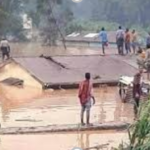
This, combined with an increasing population and conflict, leads to greater food insecurity in some areas.
Ethiopia is experiencing extreme weather variability with some areas experiencing drought, while others are impacted by flooding. Heavy rainfall is likely to occur in parts of eastern, southern, south-eastern, and southwestern Ethiopia.
According to the National Disaster Risk Management Commission (NDRMC), seasonal flooding has so far affected 470,163 people, of whom some 301,284 people are displaced in Somali, Oromia, Afar, SNNP, Dire Dawa and Harari. The situation is particularly severe in the Somali region where more than 79 per cent of the flood-affected and displaced people are located.
Floods have fully damaged the main bridges between Hudet and Negelle and between Mubarak and Filtu, Somali region. The floods also inundated planted crops and vegetables in Hudet and Mubarak woredas (the third administrative level in Ethiopia), Dawa zone. Similarly, 2,118 livestock deaths, the loss of 8,840 hectares of cropland and damage to 79 water pumps, and the destruction of road infrastructure were reported in Dollo Ado and Bokolmanyo woredas. Similar losses of livelihood and infrastructure are also reported in Moyale and Kadaduma woredas.
An increase in food commodity prices has already been reported due to poor terms of trade in the flood-affected woredas, exacerbating the already soaring market prices resulting from COVID-19 restrictions. In Oromia, floods displaced more than 63,000 people, and damaged houses and public infrastructure, including schools and health facilities, across 17 kebeles (similar to wards) in Gelana woreda. Similarly, 57 houses were damaged, 151 hectares of cropland destroyed, and 21 goats killed in Liben woreda, Guji zone. Communities in Bale and Borena zones also suffered flood damages and livelihood loss.
The Government of Ethiopia, humanitarian partners and communities are currently providing lifesaving assistance to the flood-affected and displaced people in most of these areas, albeit with limitations. Additional resources are urgently required to address unmet food and non-food needs, including emergency shelter and non-food items (ES/NFI), health and WASH services as well as early recovery support.
Dawit Beza is the ACT Ethiopia Forum Coordinator and works with Norwegian Church Aid Ethiopia. He has an MSc in Watershed 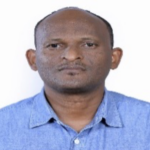 Management. Dawit has been an ACT Alliance delegate at COP26 this week.
Management. Dawit has been an ACT Alliance delegate at COP26 this week.
The Final Days of COP26 [COP26 news]
ACT Alliance’s Goodwill Ambassador for Climate Justice, Prof. Cornelia Fullkrug-Weitzel, is speaking at COP26 about some of the needs for the final decisions at this conference to reflect true climate justice. (Click the arrow on the left side of the bottom bar to watch the video).
Climate crisis adds to water shortages and tensions in MENA region [COP26 Blog]
“El Hassake is thirsty” lamented the pastor of a Church in North East Syria. In her daily Facebook posts she shares pictures of thirsty
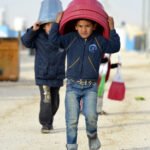
children either queuing to fill dirty plastic canisters with a few drops of water, or sitting miserably on pavements in the summer heat looking drowsy and unwashed.
Water shortages are a persistent problem in the Middle East and North Africa. It has intensified in the past ten years due to the rise in temperatures. Cities such as Baghdad, Kuwait and Muscat have recently witnessed record-breaking temperatures. Experts are predicting a 4-degree temperature increase for the region by the end of the 21st century – twice the global average. This will make parts of the region uninhabitable.
This alarming change is not only expressing itself in heart-breaking images of thirsty children across the Middle East. It has also contributed to a number of developing and nascent conflicts. The intense pressure on agriculture and crops and the scarcity of water started driving populations out of rural farming areas and into already crowded urban centres in the 2000s. Climate-induced economic despair compounded other existing problems such as poverty, unemployment and social tensions. It has expressed itself in violent responses to the scarcity of resources.
We have seen this most clearly in countries like Syria and Iraq. Various groups have controlled the dams that provide drinking water, electricity, and irrigation along the Tigris and Euphrates rivers. Millions of people who depend upon this water for survival have been left to deal with desertification and increasing drought. Climate change threatens to make these once gushing rivers disappear.
This situation is aggravated by the fact that nearly every country in the region from Egypt to Iran shares water resources with a neighbor. The dispute over the Nile River illustrates the tension. As Ethiopia builds the Grand Renaissance Dam to alleviate its power shortage, it threatens to decrease by a quarter the water flow into Egypt. This will deprive around 100 million people of a vital water supply. This already tense situation is worsened by the disruption that climate change is causing to the flow of the Nile.
All these countries suffer from unstable regimes and governments that are unable to face the challenges ahead. The situation in Lebanon is a case in point, where a fragile system is breaking down in the face of climate threats. As Lebanon experiences one of the worst economic crises in the world its ability to provide power and manage resources is highly impeded. This has severe repercussions for treating and pumping water, causing 70 per cent of the population to face a critical water shortage. This is particularly true in areas where there is a high concentration of Syrian refugees, as in the North and the Bekaa valley where water demand has far exceeded availability. The economic collapse has meant that for a large portion of the population alternative clean water sources have become unaffordable.
More and more children and adults will be yearning for a drop of water if the rise in temperature is not soon mitigated. A vulnerable region such as the Middle East with its compounded problems needs speedy action for survival!
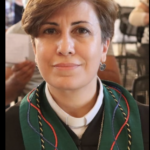
There is no climate justice without gender justice [Media release COP26]
November 9, 2021
There is no climate justice without gender justice
“Speeches and agreements are not enough to ensure gender justice. Words must be followed by action,” says Birgitte Qvist-Sørensen, ACT Alliance Moderator. “Gender inclusion cannot be just an exercise of ticking boxes; it needs be turned into robust
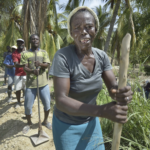
action that fosters both women’s agency and gender equality.”
Gender has long been an integrated element in the climate debate. Despite decisions and work plans, we have not seen necessary transformative change. The lack of female leadership can be noted at the UN climate talks, where men still dominate both in numbers, and in discussions and negotiations. It can also be noted in the implementation of climate-related projects, where gender concerns are not always addressed. Some climate solutions even run the risk of reinforcing patriarchal norms.
The Nordic countries claim to be frontrunners on both climate and gender policies and they have also, to varying degrees, taken initiatives to ensure that gender is mainstreamed in climate-related projects. For these reasons, members of ACT Alliance in Norway, Sweden, Denmark and Finland decided to assess the integration of gender in Nordic climate finance.
The report on their assessment is called From Words to Action: Lessons from Nordic Efforts to Integrate Gender Equality in Climate-Related Development Finance. It enumerates a number of useful and interesting results, including both best practices and challenges where the work can improve. For instance, adaptation projects have a larger focus on gender than mitigation projects. And while many projects include a gender analysis, they lack concrete activities to ensure that gender concerns are considered in the implementation of the project.
“We know that women and girls are more impacted by climate change. We must be serious about mainstreaming gender in all climate solutions,” says Rudelmar de Faria, ACT Alliance General Secretary. “Gender equality cannot just be words on paper nor can it be siloed into a completely separate discussion.”
For interviews or more information, please contact:
Finland: Niko Humalisto, niko.humalisto@felm.org, +358 40 757 40 36
Sweden: Margareta Koltai, margareta.koltai@svenskakyrkan.se, +46702073149
Denmark: Mattias Söderberg, msd@dca.dk, phone +45 29 70 06 09
Follow the Action in the COP26 Blue Zone today [COP26 Media Release]
November 9, 2021
Today Gender will be an important part of the COP26 agenda. 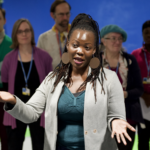
For strong visuals and knowledgeable quotes/points you can use in your stories on Gender, join ACT Alliance, Christian Aid and members of other faith-based organisations for an action in the Blue Zone.
We’ll have visuals and stories to illustrate how important a gender perspective is in achieving climate justice, especially for Global South women and girls in all their diversity. By demonstrating how difficult it is for Global South women to be heard at COP26 negotiations, and by telling their stories, we’ll show why it is:
- Urgent to focus on gender justice and climate change at COP26
- Important to promote women’s leadership on climate change, and to
- Ensure gender is mainstreamed in all COP26 outcomes, and
- Guarantee that the Gender Action Plan is implemented in ways that are transformative and intersectional
When: Tuesday, November 9, 2:00 pm.
Where: Zone D, between pavilion 4C and 4D
Interviews are available with:
- Fionna Smyth, Head of Global Policy and Advocacy, Christian Aid
- Patriciah Roy Akulloh, Uganda. ACT Alliance Climate Justice Reference Group Co-chair
- Dawit Beza Demissie, Ethiopia. ACT Alliance
MEDIA CONTACT: Simon Chambers, ACT Alliance, +44 7423 277 440
In Search of a Feminist Future: Shared Tables, Food and Faith [COP26 Blog]
Governments, policy-makers, businesses, scientists, faith leaders and activists are gathered in Glasgow for COP26. During two weeks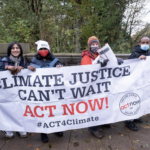 of negotiations, policies and action plans are to be agreed upon. As UN climate officials have warned, inaction will result in global security and stability breaking down, with continued migration crises and food shortages bringing conflict and chaos.
of negotiations, policies and action plans are to be agreed upon. As UN climate officials have warned, inaction will result in global security and stability breaking down, with continued migration crises and food shortages bringing conflict and chaos.
Masked participants are a reminder that these negotiations are taking place during a pandemic. COVID-19, among many other crises, has unveiled the fragility of the social care system and economy. Women and girls in all their diversity are most impacted by the climate emergency, but still face challenges in participating at the table where decisions that affect them are taken.
Sharing the table is a good metaphor to illustrate who are subjects and who are agents of decisions. There are social, economic, racial and gender disparities that affect who has a seat at the table. The theologian Dr. Musimbi Kanyoro talks of the round table, which has no sides and no preferred seating [1]; where space is constantly made for newcomers and where all can be seen and heard. At COP26 and beyond, women are seeking a round table, with all its potential and possibilities.
Sharing or accumulating food defines social relations. The word “companion” carries in its (Latin) root (con-pan) the notion of “with and bread.” With whom do I eat the bread? Whoever is my partner at the table, she, he or they are my partners in life and in social relations. We become allies with those whom we share the table and with those whom we share food. If women are not integral, whole and comfortable at the table, then the table is not round, inclusive and democratic.
The COP26 negotiations show that our current policy-making spaces are not inclusive. Critical voices and their lived experiences of the climate emergency, those who should be at the forefront of these discussions, are silenced, ignored and forgotten. “As long as women are asked to bring a self-denying mentality to the communal table, it will never be round, men and women seated together; it will remain the same traditional hierarchical dais, with a folding table for women at the foot.”[2]
Patriarchy is a system which holds power; a system reinforced by colonizers – one which takes territory to be conquered, explored, ab/used. In the same way women’s bodies continue to be positioned as a territory to be conquered, domesticated, ab/used. There is a deep epistemological and practical connection between what destroys the earth and what denies people of their rights and agency. This goes hand in hand with a theology that uses biblical testimonies to justify hierarchical power relations. The Creation story is one example – land will be dominated as man will dominate woman.
Throughout COP26, there have been strong calls from civil society, including people of faith, for feminist and decolonising agreements and action. There is a collective and heavy responsibility to rethink, renew and rebuild, while we continue to live with COVID-19. We must shift our focus to the empowerment and agency of those concerned. The time for ‘benevolence’ and ‘pity’ is over.
We are no longer searching for Western saviours. We are calling for justice, and for countries to address histories of oppression. This requires those practices of solidarity which create communities, and bringing people together in relationship with each other and Creation, and with shared responsibilities. This is rooted in our theologies, which call us to love – love your neighbours – as the diaconal mandate of churches and faith-based organisations. This is without imposing and absolutising our truths, like a universal imperialism that obstructs the flow of biodiversity, creates borders and controls territories.
If we continue with the metaphor of the shared table, we can reflect on the food we bring to that table. As poet Sor Juana Inés de la Cruz says, “If Aristotle had cooked, he would have written much more.”[3] There is often a distance between the kitchen and the library in women’s writing. Sometimes the kitchen seems to refer to an obscure place, where women lose themselves in mechanical gestures. In silence, with poor understanding of complexity, and with no need for a higher level of reflection and knowledge or difficult language. Orality dominates. There is the assumption that the library is a structured atmosphere of complex knowledge and language; one where the environment nurtures a highly-qualified level of knowledge that is systematized in written narratives.
Recovering memories from the kitchen and searching for the wisdom in recipe books is a political movement which vindicates the plurality of knowledge. It is searching for solutions from a context perspective. Kitchen philosophies are a cognitive experience distinct from normative knowledge which is normally learned in predominantly patriarchal and male- oriented educational institutions that lack the materiality of daily life. The production of knowledge in that protected and carpeted environment is safeguarded from the rumours, noise, dust and smells of domestic life.
Let’s talk about our knowledge, spirituality, wisdom, philosophies and theologies. They flourish while we move about our kitchens with their tables, pots and jars, but also in libraries, seminaries, negotiating rooms and academic spaces. Let us conclude with one possible recipe for a faith-based feminist and decolonised outcome towards a new social contract. This is one, there will be other, diverse pathways for gender justice and environmental sustainability, where social justice is at the centre of global development:
- Create Round and Inclusive Tables. Identify the missing voices and address structural and social barriers.
- Practice Solidarity. Be challenged to do things differently, to decolonise and create communities shaped by our feminist and faith values.
- Search for, Research and Respect Community Knowledge. Avoid reinforcing hierarchies of knowledge, and shape policies based on the realities, lived experience and knowledge of people on the frontlines of the climate emergency.
- Address the Extractives Status Quo and Promote Economic Justice. Promote biodiversity and ecosystems; protect access to water, food and land; and, work for a gender-responsive care economy.
- Counter Fundamentalisms and Anti-rights Backlashes. Work with women’s rights organisations and transformative faith-based approaches to transform social norms, strengthen democratic spaces, and amplify marginalised prophetic voices.
References
[1] Musimbi Kanyoro. (1997) In Search of a Round Table: Gender, Theology and Church Leadership. Geneva: WCC
[2] Naomi Wolf. Hunger. In. Patricia Fallon, Melanie A. Katzman, Susan C. Wooley. (eds.) Feminist perspectives on eating disorders. New York/London, The Guilford Press, 1994, p. 98
[3] Sor Juana Inés de la Cruz. La respuesta a Sor Filotéa de las Cruz. In Margaret Sayers Peden (trans.) A Women of Genius, an Intellectual Autobiography. Salisbury, CT: Lime Rock Press, 1982.
Elaine Neuenfeldt is the ACT Gender Programme Manager and Rachel Tavernor focusses on ACT Gender Advocacy.
COVID-19 lessons for the climate crisis
COP 26 is now taking place. Stakeholders are attending the event with the conviction that we can no longer accept perennial denial of the real impact of climate change on the planet and humanity. It is time now to take bold and proactive actions to reverse the collective societal moral and political failure to address climate change in all its dimensions.
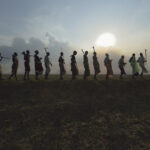
As the head of the ACT Alliance, one of the co-chairs of the UN Multifaith Advisory Council and a permanent observer member of the COVAX Facility governance structure, I want to highlight my perspective through different prisms.
Holistic response needed
Climate change represents the most complex challenge of our time – it requires a concerted, proactive and holistic response. It is happening as we face a global epidemiological crisis, which is exacerbated by structural inequalities and discriminations in our societies.
Even when there is plenty of evidence of the impact of climate change on people, as well as the effectiveness of COVID-19 vaccines, we still see people and governments denying both. We see religious leaders appealing to governments to commit to ambitious targets at the upcoming UN climate conference. For them, care for the environment is a moral imperative to preserve the planet for future generations and to support communities that are most vulnerable to climate change. On the other hand, we also see some religious leaders at the forefront of denial of vaccination against COVID-19.
COVID-19 lessons relevant to the climate crisis
I believe that is worthwhile to mention research in the Lancet (https://www.thelancet.com/), where experts in vaccine hesitancy provided three key lessons in risk communication to successfully maintain public support. These can also be applied to policies designed to cut carbon emissions quickly and substantially.
- The first key lesson is that the public must not be forgotten during the rapid transition to net-zero carbon emissions. Just as every vaccine that remains in the vial is 0 per cent effective, every green technological breakthrough is similarly useless in getting to net-zero if it remains unutilized.
- The second key lesson is to identify and support trusted messengers. Whether it is a call to vaccinate against COVID-19 or a call to reduce meat consumption, if it is to be heard and acted upon, the source of such a message first needs to be trusted.
- The third lesson is that if your message is not being heard, then humanize the data.
Impacts of both crises
The differentiated and intersectional impacts of both crises become more glaring when we zoom into specific issues such as gender equality, migration and displacement, and peace and human security. We must link the epidemiological crisis to the equally urgent climate crisis. The climate crisis presses climate-vulnerable countries to the edge as they face major climate-induced disasters and other hazards in addition to their ongoing COVID-19 response, prevention and recovery efforts.
There is a growing body of evidence showing that women, in all their diversity, are generally more vulnerable to the negative impacts of climate change than their male counterparts. Efforts to tackle gender inequality can play a key role in how countries adapt to the growing risks posed by climate change.
Many humanitarian catastrophes around the world are increasingly related to climate change, and it is a key driver of poverty and an inhibitor for sustainable development. It causes loss of lives and income, and damage to property, which in turn causes population displacement and conflicts. Our work should be connected more closely with disaster risk reduction, strengthening community resilience, livelihoods and climate change adaptation as well as compensation for loss and damage and climate-induced migration.
We have a very narrow window of opportunity to prevent the worst impacts of climate change. Climate action is not something that can be delayed for 5, 10 or 20 years. We must take urgent and ambitious action now.
Rudelmar Bueno de Faria (Brazil) is the General Secretary of the ACT Alliance. Mr Bueno de Faria has over 25 years of experience working with national and international religious and church-related organizations on humanitarian, development and advocacy programmes. From 2014 to 2017 he served as the World Council of Churches Representative to the United Nations. Rudelmar is the co-chair and member of the United Nations Multi-Faith Advisory Council, member of the UN Steering Committee for the Implementation of the Plan of Action for Religious Leaders and Actors to Prevent Incitement to Violence, member of the UN High-Level Commission of the Nairobi Summit on ICPD25 Follow-up, and a member of the AMC Engagement Group of the COVAX Facility.
Loss and Damage skit at COP27 Nov 9 13h30
Media Release
Monday, November 8
Loss and Damage will be an important part of the COP27 agenda.
Do you need strong visuals and knowledgeable quotes/points you can use in your stories on Loss and Damage?
Join ACT Alliance, Christian Aid and members of other faith-based organisations for a skit with visuals that will show loss and damage from the perspective of communities in the Global South in a simple and direct way.
The action will illustrate the difficulties that Global South countries have being heard by wealthier nations about their need for funding on Loss and Damage. It will further show the issues that many developing nations have with:
- the current climate finance situation,
- the need for transparent and accountable financing, and
- an increased share of existing climate finance for adaptation work.
When: Monday, November 8, 1:35pm.
Where: Zone D, between pavilion 4C and 4D
Interviews can be made available with
- Rudelmar Bueno de Faria, General Secretary, ACT Alliance
- Julius Mbatia, Kenya. Climate Justice Manager, ACT Alliance.
- Patriciah Roy Akulloh, Uganda. ACT Alliance Climate Justice Group Co-chair
MEDIA CONTACT: Simon Chambers, ACT Alliance, +44 7423 277 440
Climate induced loss and damage is a harsh reality in Nepal [Press release COP26]
While there continue to be disagreements about how to address climate induced loss and damage in the negotiations at the UN Climate summit, COP26, people in many developing countries struggle daily with climate related disasters. When the climate becomes a threat: Evidence of climate change induced Loss and Damage in Nepal, a new report by DanChurchAid, a Danish member of the ACT Alliance, launched Monday, assesses the situation in three municipalities in Nepal.
All three have experienced either flooding or landslides, two natural hazards which are linked to climate change. Nepal is vulnerable, and affected both by melting glaciers, and increased temperatures and rain. In such a mountainous country this has dramatic effects.
The report shows how people were forced to leave their houses, and how the water and the landslides destroyed their property and fields, and killed their cattle. None of the three municipalities received international support, but local authorities and civil society organisations provided some immediate support. However, this support was far from enough and 82% of the households had to take out loans to recover and reestablish their homes. 9% chose to permanently leave their homes, and can thus be called climate-induced displaced people.
Birgitte Qvist-Sørensen, Moderator of the ACT Alliance, says, “The situation is tragic. These people have not been contributing much to global warming, but at the same time climate change has a huge impact on their lives and livelihoods. This is not fair! Climate induced loss and damage must be addressed globally, and big polluters must mobilise the support needed.”
The climate action advisor at the DanChurchAid office in Nepal, Rajan Thapa, said,“The assessment shows that people have been forced from their homes, and that some people choose never to return. This is sad, but also understandable, as climate change continues to pose a threat to these communities. Without adaptation to reduce the risk for flooding and landslides, it is likely that these municipalities will continue to face similar disasters, leading to more climate induced loss and damage.”
“It is not fair that these poor families should have to take loans to recover,” Thapa continued. “This will put a debt burden on their shoulders, as they will have to repay the loan with interest. There is a real need for loss and damage finance, from developed countries, to support people who face climate change on the ground.”
The report highlights a variety of findings based on the research in the three municipalities. Highlights include:
Both economic and non-economic loss and damage is very evident in Nepal and is a common concern, as well as an issue of climate justice.
Although the study covered a limited number of households, the total economic loss for those interviewed in the three municipalities was very high at around USD 388,355, with an average loss per household of approximately USD 4,176.
Displacement is a huge problem. The majority of people return, but 9% have permanently relocated.
A majority of the affected people, 82%, were forced to take loans, to resettle after the disasters.
None of the villages received international support, and they had to rely on the local government and local organisations. However, the support they received was not enough- an average USD 1000-13500 per household is not covered by the received support.
As the insurance coverage in the affected communities is very weak and no international support was received, the response came from local actors. This shows why locally led initiatives are so important.
“Climate induced loss and damage continue to be a difficult topic in the UN negotiations, where developed countries are reluctant to address the need for scaled up support. As ACT Alliance, we continue to call for loss and damage finance, and support to vulnerable communities facing the harsh effects of climate change,” concluded Qvist-Sørensen.
For interviews, please contact
Mattias Soderberg, Climate Advisor, DanChurchAid:
Phone +45 29 70 06 09
Email msd@dca.dk